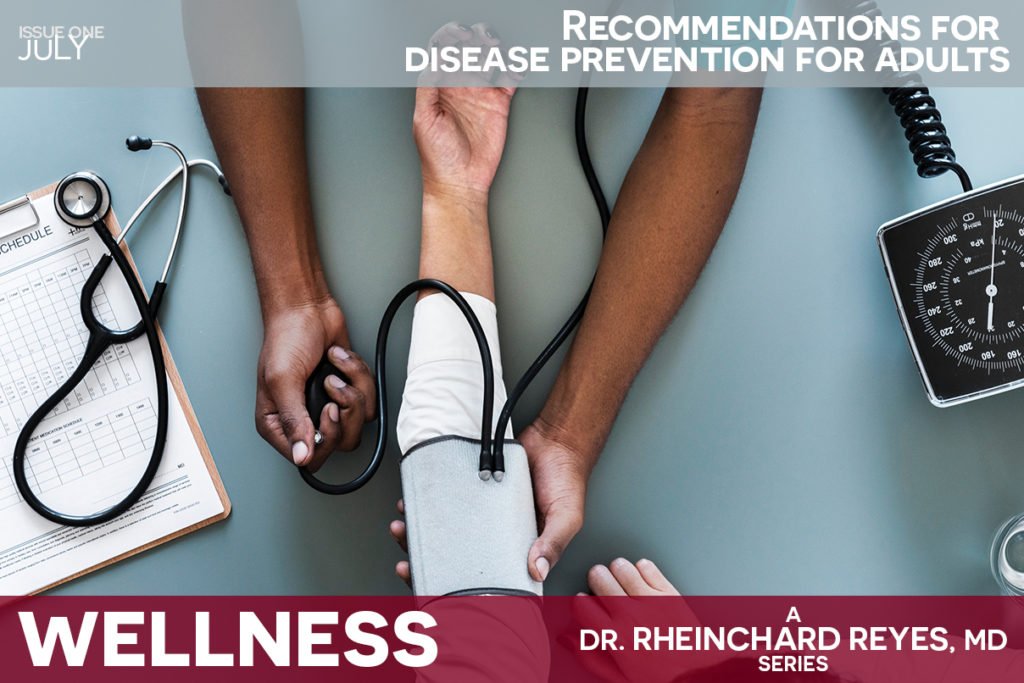As we age, the likelihood getting diagnosed with a chronic disease increases. According to the National Council on aging, 80% of adults over 64 have a chronic condition, 68% of which live with more than one. Family genetics, gender, lifestyle and age all play a major role when it comes to what diseases you’ll develop, however, as alarming as these statistics are, there are ways you can prevent the onset of a disease or make an existing one more manageable. Below are prevention recommendations for 5 of the most common chronic diseases adults were treated for in 2015, according to Medicare statistics.
Hypertension
Hypertension, also known as high blood pressure, is a common condition that affected 58% of those treated. It occurs when your arteries are too narrow to support the amount of blood the heart pumps, causing a constant force of blood against your artery walls that overtime may lead to other health complications like heart disease. Hypertension can go undetected for years, even when blood pressure is alarmingly high. Yet, some people do experience symptoms like headaches and shortness of breath.
Here’s what you can do to prevent or minimize the effects of hypertension:
– Manage stress levels
– Limit alcohol and salt intake
– Maintain a healthy weight
– Exercise daily
Arthritis
Arthritis is a disease that affects the joints, causing inflammation that leads to pain and rigidity. About 31% received treatment for arthritis, with women being affected in greater numbers. Symptoms of arthritis include pain from inflammation, pain, and decreased mobility.
Some ways to help manage arthritis symptoms or delay symptoms are:
– Maintain a healthy weight (weight gain can increase pressure on your knees)
– Exercise daily
– Take steps to protect yourself from injury
– Support your arms, legs, and back
– Don’t smoke
Diabetes
More than 25% of adults were treated for diabetes, according to the referenced data. Diabetes is the result of resistance or underproduction of insulin in the body. Insulin makes it possible for your body to distribute energy to your cells. Untreated, diabetes causes high blood sugar which leads to serious complications like heart disease, kidney disease, and even blindness. After 45, your chances of having diabetes increases.
The following habits can help you manage symptoms or prevent the condition all together:
– Exercise daily
– Follow a balanced diet, with particular attention to caloric, carbohydrate, and alcohol intake
Depression
Although common, depression is a serious mood disorder. Symptoms for depression can range from mild to severe and include extended periods of feeling sad, hopeless, fatigue, among many others. This can interrupt daily life activities like eating, sleeping, working, decision making, etc. The number of recipients that received treatment for depression totaled 14%.
Consider the following tips for managing depression:
– Manage levels of stress (meditation has been proven to help greatly)
– Routine exercise
– Maintain a healthy diet (staying away from processed food and artificial sweetener)
Dementia and Alzheimer’s
More than 10% of treatment went to those with Alzheimer’s or other form of dementia. There are various types of dementia, Alzheimer’s is the most common one. Alzheimer’s develops slowly, overtime, and causes memory loss, confusion, and difficulty problem solving.
Prevention and mitigation for the disease is possible by incorporating the following into your routine:
– Regular exercise (routine exercise is good for the brain)
– Healthy diet (some foods, like smoked meats and beer, have been linked to Alzheimer’s)
– Healthy sleep routine
Being diagnosed with any of these diseases can be frightening but taking steps towards prevention can be as simple as exercising more mindfulness when it comes to your body’s needs. It is imperative that you receive annual health screenings for early diagnosis and treatment for any condition. As always, contact your healthcare provider if you have any questions or concerns regarding any of the referenced conditions or if you haven’t had a check-up in over a year.
Sources:
- https://www.ncoa.org/blog/10-common-chronic-diseases-prevention-tips/
- https://www.mayoclinic.org/diseases-conditions/high-blood-pressure/symptoms-causes/syc-20373410
- http://www.medicareadvocacy.org/quick-medicare-facts-statistics/
- https://www.arthritis.org/about-arthritis/understanding-arthritis/what-is-arthritis.php
- http://www.diabetes.org/
- https://www.nimh.nih.gov/health/topics/depression/index.shtml


